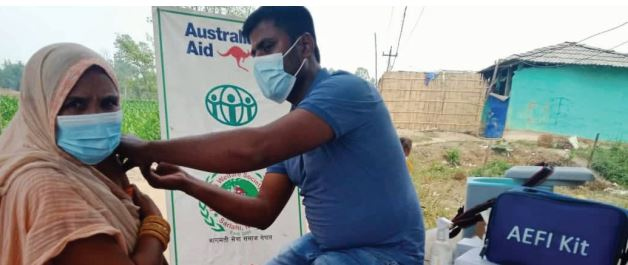The Success of Mobile COVID 19 Vaccination
The COVID-19 pandemic has served as a stark reminder of the critical role vaccinations play in our global battle against infectious diseases. Among the most vulnerable groups during this crisis were pregnant and lactating women, people with disabilities, and individuals with underlying health conditions. These groups faced a heightened risk of severe COVID-19 infections, emphasizing the urgent need for their vaccination to reduce fatalities and ease the strain on healthcare systems. The challenge was clear: finding an innovative way to reach these at-risk populations.
In response, ADRA Nepal, in collaboration with the Ministry of Health and Population's Family Welfare Division and Child Health and Immunization Section, initiated the Mobile COVID-19 Vaccination Service (MoCoVs). This pioneering initiative involved deploying a specialized mobile van, staffed with a skilled vaccinator and a nurse, to all eight districts of Madhesh Province. Its primary objective was to make COVID-19 vaccines easily accessible to those who needed them most. Rigorous measures were put in place to safeguard vaccine quality during transport, including the use of specialized vaccine storage boxes and equipping the team with Adverse Events Following Immunization (AEFI) kits.
MoCoVs efficiently targeted high-risk individuals, with a particular focus on pregnant and lactating women, the elderly, people with disabilities, and those with underlying health conditions. The program successfully reached over 133,000 recipients across all eight districts of Madhesh province. This accomplishment not only underscores the success of MoCoVs in reaching vulnerable communities during a health emergency but also contributes significantly to the reduction of COVID-19 transmission rates.
Dr. Bibek Kumar Lal, Director of the Family Welfare Division, lauded the initiative, stating, "We found it a remarkably effective approach. It resonated well with the population, and it played a crucial role in ensuring equity during times of health emergencies. We received highly positive feedback from clients, healthcare providers, and local communities alike. I firmly believe that this approach can be replicated in other health emergency settings to ensure equity during challenging times."
MoCoVs has emerged as a resounding success and a source of inspiration for reaching vulnerable populations in Nepal. As we continue our battle against the COVID-19 pandemic and prepare for future health emergencies, MoCoVs stands as a testament to the power of innovation and inclusivity in healthcare delivery

